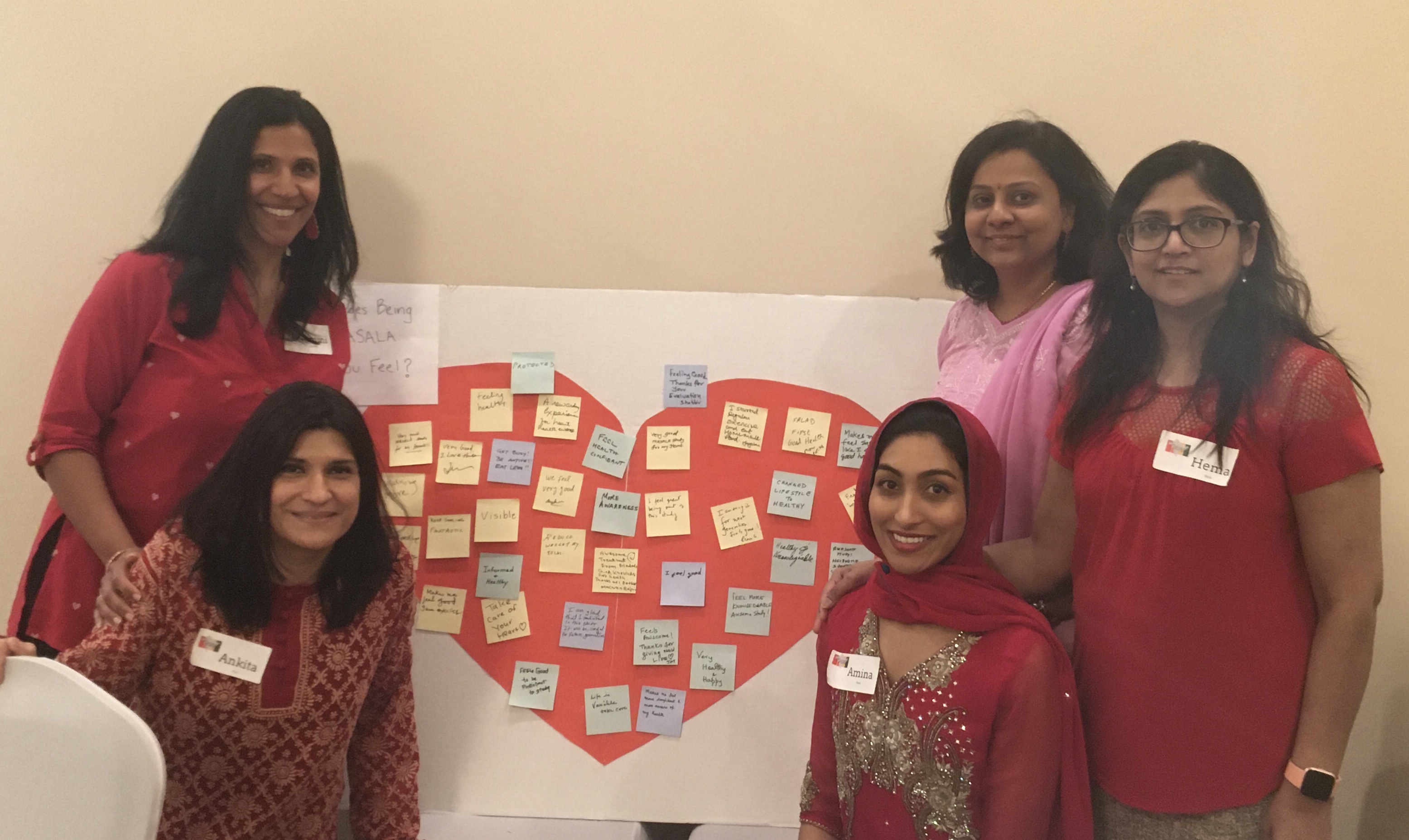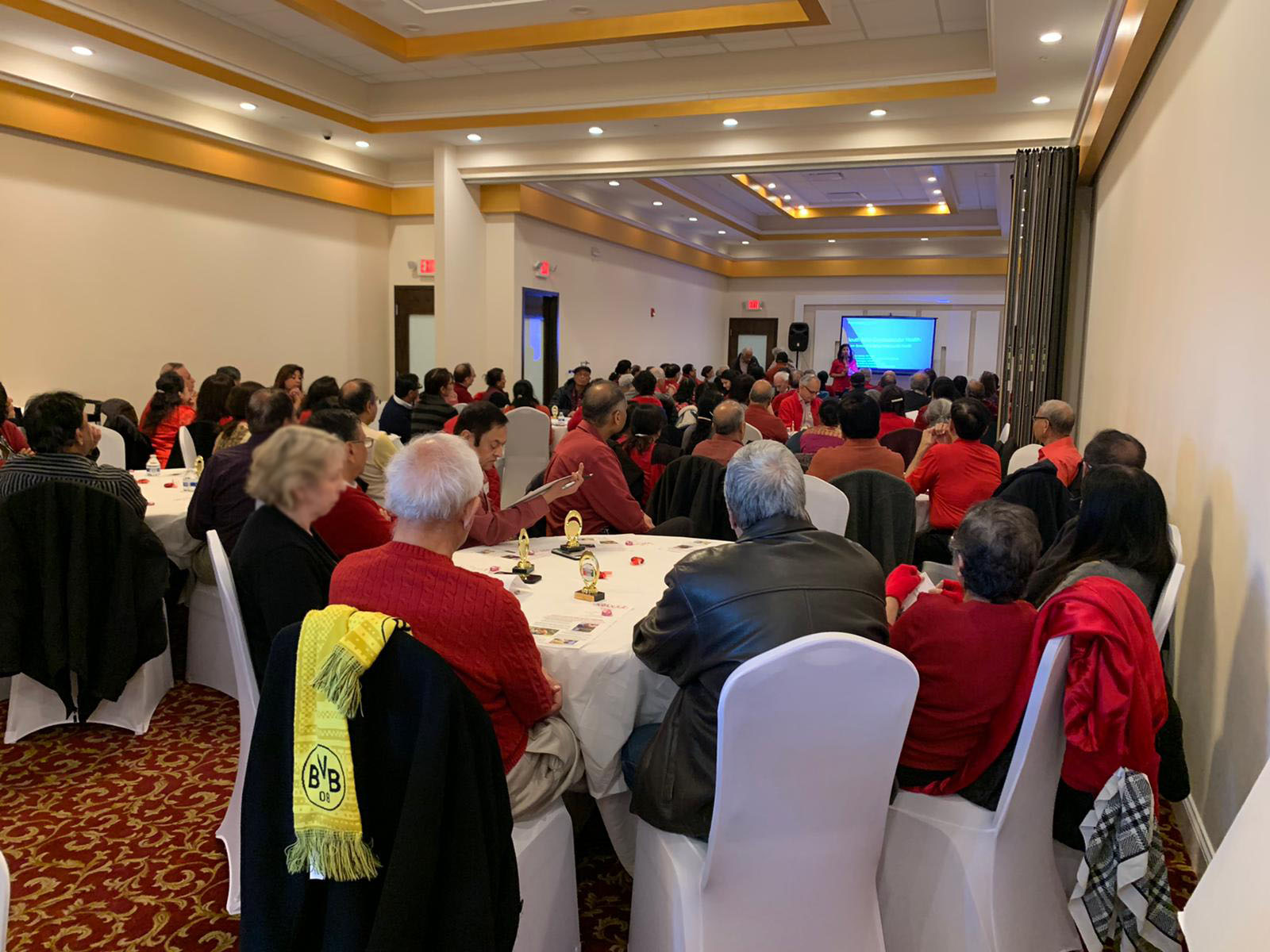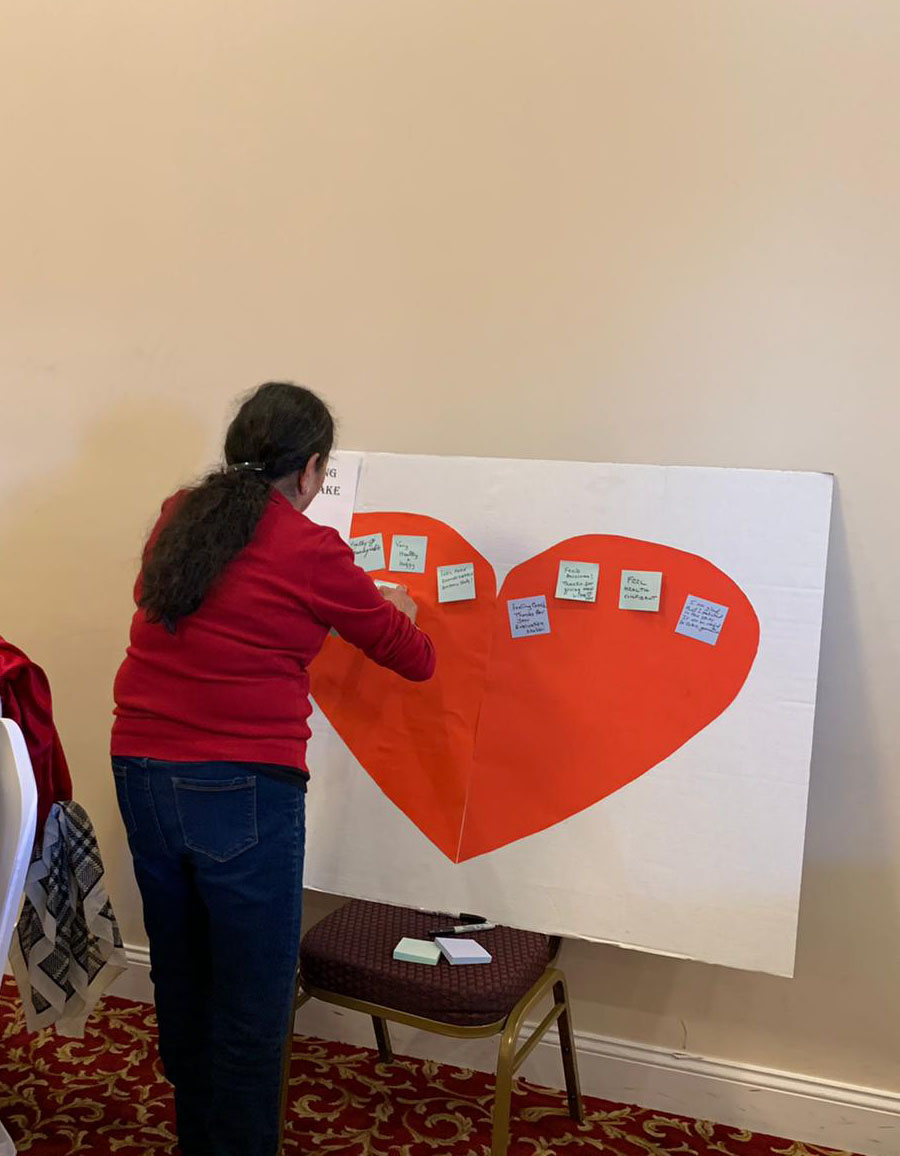Celebrating 10 Years of Collaborative Research with the South Asian American Community
 On February 22, 118 attendees gathered in Naperville to celebrate the 10 year anniversary of the Mediators of Atherosclerosis in South Asians Living in America (MASALA) Study. The MASALA Study is the first longitudinal cohort study to investigate novel and traditional risk factors that contribute to disparities in heart disease and diabetes in South Asian Americans. The study is a result of a partnership between Northwestern and the University of California San Francisco.
On February 22, 118 attendees gathered in Naperville to celebrate the 10 year anniversary of the Mediators of Atherosclerosis in South Asians Living in America (MASALA) Study. The MASALA Study is the first longitudinal cohort study to investigate novel and traditional risk factors that contribute to disparities in heart disease and diabetes in South Asian Americans. The study is a result of a partnership between Northwestern and the University of California San Francisco.
The luncheon event was centered around recognizing the 1,164 participants from Chicago and San Francisco that agreed to be a part of the MASALA study over the last 10 years—a true collaboration between researchers and the community. Each of the 118 attendees from the Chicago site was honored with a trophy and had an opportunity to reflect on how the MASALA study has impacted them.
Madhu Uppal, a community participant that attended the 10 year anniversary event, said: “This research is important in helping the medical community become better equipped to serve the health needs of present as well as future generations of South Asians through better diagnostics and treatment. It is also important in helping this community make better lifestyle decisions and lead healthier and hopefully disease-free lives! I feel fortunate that I have been a part of this study and feel connected to my community even further through this shared goal of keeping this study moving forward.”
Namratha Kandula, MD, MPH, co-principal investigator on the study and co-director of IPHAM’s Center for Community Health, also presented on the accomplishments from the last decade.
“The MASALA study has changed the way we understand cardiovascular disease (CVD) risk in Asian American populations and has made important contributions to clinical and public health prevention guidelines in the U.S,” said Kandula. “It has also been very meaningful to the South Asian community, whose health issues have often been overlooked.”
"By reaching this 10-year anniversary, the MASALA Study highlights how a lasting commitment to the principles and practice of community-engaged research can advance health equity through research," said Ronald Ackermann, MD, MPH, director of the Institute for Public Health and Medicine (IPHAM). "This is a shining example of genuine community-engagement in research, and we are so proud of the MASALA research team and grateful to the study's community participants."
South Asian Americans are the second fastest growing minority group in the US, yet they are typically underrepresented in health research. Data from the MASALA study has provided new insights into the health and well-being of South Asian Americans.
MASALA Study Impact
Data from the MASALA Study helped to inform the American Diabetes Association’s screening guidelines for Asian Americans. In 2018, the American Heart Association and American College of Cardiology CVD prevention guidelines recognized that South Asian ethnicity may be a risk-enhancing factor for CVD and should be part of patient-provider discussions around CVD prevention.

The MASALA Study team has also developed education materials for health care providers and for the South Asian community to increase awareness about South Asian CVD disparities and provide strategies to increase screening, prevention, and treatment in South Asians.
“I am most proud of the connections we have with our study participants—connections that are built on principles of community-engagement, including collaboration, respect, mutual benefit, and equity,” Kandula said. “At the anniversary event, we asked participants to answer the question, ‘How does participating in MASALA make you feel?’ Participant responses included ‘Visible,’ ‘Protected,’ ‘Healthy,’ and ‘Informed.’ This is very powerful because South Asian and Asian American immigrants have traditionally been thought of as a 'model minority' without any health issues and have been overlooked in research studies. I am extremely proud of the ways our team has been able to meaningfully involve community in our research to advance health equity.”
The Future of the MASALA Study
While 10 years is quite a milestone, Kandula says that in some ways, MASALA is just getting started.
The team will continue to follow the MASALA cohort to understand how the rich clinical, behavioral, social, and cultural data that have been collected are associated with longitudinal CVD outcomes, such as heart attacks and strokes.
There is a lot of interest in the community and among researchers to understand if second generation, US-born South Asians have a similarly high risk for CVD or if their risk is different.
MASALA can also be enriched by increasing the numbers of Pakistanis and Bangladeshis that participate in the cohort, so that the study population is more representative of the diverse and growing South Asian American population.
Finally, the team will be working with a team of researchers to undertake the genetic sequencing of the MASALA study DNA samples. This is an exciting opportunity to start understanding the underlying genetic architecture of CVD risk and outcomes in South Asians.
“MASALA has also been an excellent opportunity for the next generation of researchers who are interested in South Asian health and health equity research,” Kandula says. “When I first started my career, I received well-meaning advice from senior researchers that it would be very hard to build an academic research career focused on Asian American health. I feel incredibly grateful that the NIH has invested in research on South Asian health and am proud of the unique research infrastructure my co-PI and I have built for the next generation of investigators.”
